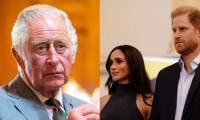DUBLIN: Ireland suspended the use of the AstraZeneca coronavirus vaccine on Sunday, following reports of blood clots in adults who received the shot in Norway.
"The administration of Covid-19 Vaccine AstraZeneca is temporarily deferred from this morning, Sunday 14th March," a health ministry spokesman told AFP.
The move came after Ireland’s National Immunisation Advisory Committee (NIAC) recommended suspending the AstraZeneca rollout "on the precautionary principal" after "a report from the Norwegian Medicines Agency of four new reports of serious blood clotting events in adults after vaccination".
"It has not been concluded that there is any link" between the AstraZeneca vaccine and the blood clot cases and action has been taken "pending receipt of further information", Ireland’s deputy chief medical officer Ronan Glynn said in a statement.
The NIAC is due to meet on Sunday morning and to issue a further statement on the matter. Some 570,000 doses of coronavirus vaccines have been administered in Ireland to date, according to government data last updated on Wednesday.
A total of 109,000 of those doses have been manufactured by the Anglo-Swedish pharma giant AstraZeneca. An AstraZeneca spokesman said the "an analysis of our safety data that covers reported cases from more than 17 million doses of vaccine administered has shown no evidence of an increased risk" in blood clot conditions.
"In fact, the reported numbers of these types of events for Covid-19 Vaccine AstraZeneca are lower than the number that would have occurred naturally in the unvaccinated population," a statement added.
Ireland -- a nation of five million -- has suffered 4,534 deaths from the coronavirus according to latest official figures. The Republic is currently in the midst of its third lockdown after suffering a surge of cases which saw it become the world’s most infectious nation in early January.
The government is already under pressure from opposition lawmakers over a drought in vaccine supply amid a sluggish nationwide rollout tethered to the EU jabs programme. On Thursday health minister Stephen Donnelly said AstraZeneca is "repeatedly changing its delivery schedules, often at the last minute, and revising down the volumes it will deliver".
"It is deeply frustrating for everybody, with so many people looking to get vaccinated as quickly as possible," he told lawmakers in Ireland’s Dail lower house of parliament.Meanwhile, Italy’s health minister said on Sunday the government hoped new coronavirus restrictions imposed on three quarters of the country would allow a relaxation of measures in the second half of spring.
Roberto Speranza comments in Sunday’s La Repubblica newspaper came on the eve of restrictions taking effect from Monday and running until April 6, which would cover the crucial Easter holiday period.
"The implementation of more stringent measures and the gradual increase in the number of people vaccinated make us think we will have improving figures by the second half of spring already," he said.
The new factor had been the recent mutations of the original virus, particularly the one identified in England, which now accounted for more than half the cases. But he added: "Each dose of vaccine injected is a step in the direction of the way out of the crisis."
Schools, restaurants, shops and museums will close across most of Italy on Monday, a year after it became the first European country to face a major outbreak. Prime Minister Mario Draghi said on Friday the surge in infections was fuelled by the new, more contagious variants.
In a latest development France’s government said on Sunday it plans to evacuate around 100 Covid-19 patients from intensive care units in the Paris region this week as hospitals struggle to keep up with a surge in cases.
With the transfers, officials hope to avoid a new lockdown for the roughly 12 million people in and around the capital as they race to step up a vaccination drive that got off to a slow start. "By the end of this week, probably around 100 patients will have been evacuated from the Ile-de-France region" encompassing Paris, government spokesman Gabriel Attal said at Orly airport, where two patients -- aged 33 and 70 -- were airlifted to the southwestern city of Bordeaux.
Later this week, two specially equipped trains will transfer "several dozens of patients to regions that today are under less strain" from the pandemic, Attal added. Meantime, the United States’ top pandemic advisor said Sunday that authorities were considering cutting social distancing rules to three feet (one meter), a move that would change a key tenet of the global fight against Covid-19.
Anthony Fauci, a world-respected figure during the coronavirus crisis, said experts at the Centers for Disease Control (CDC) were examining a Massachusetts study that found "no substantial difference" in Covid cases in schools observing six-foot and three-foot rules.
Asked on CNN’s "State of the Union" show whether that meant that a three-foot separation was sufficient, Fauci replied, "It does, indeed." "The CDC is very well aware that data are accumulating making it look more like three feet are OK under certain circumstances," Fauci added.
While cautioning that the CDC was still weighing the data and conducting its own tests, he said its findings would come "soon." The six-foot social distancing rule has been a widely-adopted global measure to prevent the spread of the coronavirus, along with mask-wearing and hand-washing.
School officials across the world are under pressure to fully reopen as soon as safely possible, but many say the six-foot requirement makes it difficult without adding portable classrooms or shortening the school day. Many teachers unions have also insisted on six-foot distancing.
The head of the Catholic Church, Pope Francis can be seen in this image. — AFP/FileVATICAN CITY: Pope Francis warned...
The House of Commons in central London on November 13, 2024. — AFPLONDON: Groomed and raped by a criminal gang as a...
Firebrand monk Galagodaatte Gnanasara. —Reuters/FileCOLOMBO: A Sri Lankan court jailed a politically influential,...
An armed police officer patrols near the Ministry of Defence in London, Britain May 11, 2016.— ReutersLONDON:...
US President-elect Donald Trump looks on during a press conference at Trump Tower in New York City, US, September 6,...
Lebanon's army chief Joseph Aoun walks after being elected as the country's President at the parliament building in...







